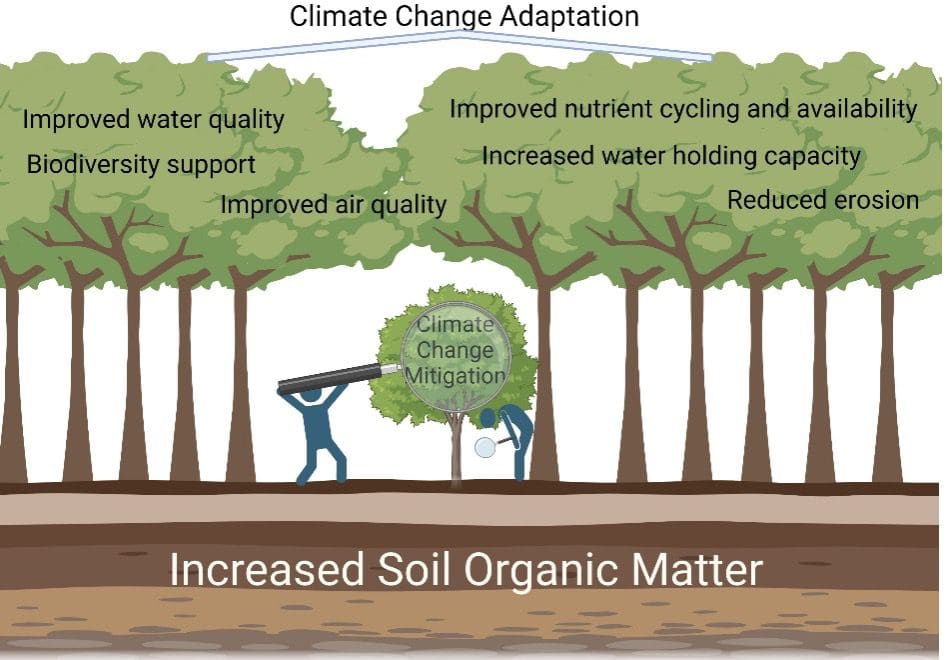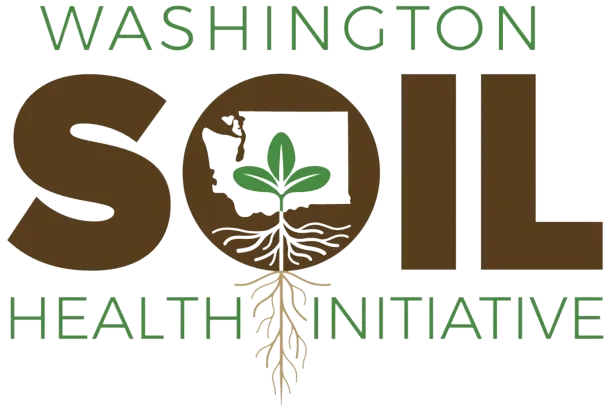
©
Science-informed soil carbon policies in Washington and beyond
Navigating the complexities of soil carbon management requires a multi-faceted policy approach that balances climate change mitigation with broader soil health benefits and adaptation strategies
June 21, 2023
Author: Dani Gelardi
The public interest in soil carbon
Soil carbon was historically the subject of niche curiosity, with only soil scientists and growers aware of its existence. The urgency of climate change, however, has sparked intensive public interest in managing farmland to build soil carbon. The “regenerative farming,” “climate-smart agriculture,” and “natural climate solutions” movements have led to enormous opportunities for soil scientists and growers alike, as new soil carbon initiatives are created by public, private, and philanthropic entities.

Current United States strategies to building and preserving soil carbon, and their potential contributions to an effective, science-informed policy and program portfolio. This table illustrates how diverse approaches are required to achieve diverse goals. From Gelardi et al. 2023, doi: 10.3389/fsufs.2023.1188133.
They have also led to confusion over what is possible or practical to achieve through agricultural lands, as soil carbon formation and storage is complex, and its response to management is context-dependent.
This poses challenges to decision makers in creating defensible, science-informed policies and programs that protect and build soil carbon.
To address these challenges, WaSHI collaborators have published a review in Frontiers in Sustainable Food Systems. The article summarizes current soil carbon science, in order to frame a “pros and cons” discussion of ten approaches in United States policy and practice.
Invest in soil for climate adaptation
Some approaches will be familiar to those in Washington, such as soil health initiatives (WaSHI), research (LTAREs and State of the Soils), and direct incentive payments (Sustainable Farms and Fields). Emerging approaches like carbon markets and crop insurance reform are also described. Ultimately, the article advocates for a multi-pronged policy approach that leverages the strengths and expertise of many diverse stakeholders.
The overall aim of the article is to provide actionable direction for increasing soil carbon storage, while simultaneously encouraging decision makers to reach beyond carbon. Though agricultural management may increase soil carbon in some contexts, results are not universal. Independent of climate change mitigation, soils provide innumerable valuable services, which may be more important for climate change adaptation.

Missing the forest for the trees. This diagram illustrates how policies with a sole focus on increasing soil carbon for climate change mitigation may miss opportunities to promote other ecosystem services. Improving agricultural management can improve the capacity for growers and society to adapt to climate change, even in cases where it does not mitigate climate change. From Gelardi et al. 2023, doi: 10.3389/fsufs.2023.1188133.
Read the open access article at Frontiers in Sustainable Food Systems to learn more (full article to be posted on Thursday, June 29th).

Dani Geraldi
Senior Soil Scientist and WaSHI Lead, Washington State Department of Agriculture
This article was published by the Washington Soil Health Initiative. For more information, visit wasoilhealth.org. To have these posts delivered straight to your inbox, subscribe to the WaSHI newsletter. To find a soil science technical service provider, visit the Washington State University Extension website or the Washington State Conservation District website.

